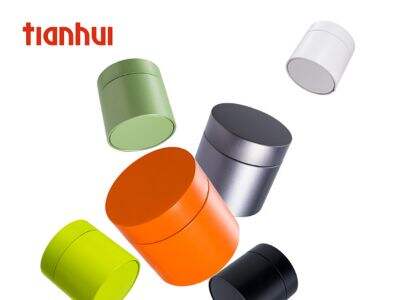Which one is Actually Better for the Environment?
Besides the other extraordinary aspects of your average tin can and not so special plastic containers. For today, we are going to pit tin cans vs. plastic containers and discuss which one is eco-friendlier.
Tin Cans vs Plastic Containers
Two of those most common materials typically are metal, especially aluminum and steel for tin cans, and plastic in the form of plastic containers. When it comes to the environmental impact, both materials have their pros and cons. Shrink-wrap or Stretch Film: Another item used daily on almost any product, this thin film of plastic is also not very useful to collect. Different types would exist if all the supermarket chains also sell it now but only in some parts of the country, and waste contractors have been arguing for years that recycling systems are incompatible due to contamination with other materials like paper. All plastic containers, on the other hand, are recyclable but are not as simple to reclaim. Tin cans are also much less likely to break and be more durable than plastic containers.
The environmental damage of tin cans and plastic containers:
Both are using energy and resources to make tin cans or plastic pots. But tin cans are usually more easily recyclable than the type of plastic containers with a similar ability to have imprinting or foil finishes applied. The difference is that plastic containers are petroleum-based products (a non-renewable resource as it will run out) and have to be recycled in order to manufacture them into other things but tin can also offer certain recycled materials. Unlike plastic containers, tin cans are less decomposable in the environment. Reducing waste overall, as such tin cans.
Let us study tin cans and the sustainability they provide in comparison to plastic containers;
Tin Cans VS Aluminum Tins: Tin cans are recyclable in comparison to plastic ones, so over time they prove more sustainable than the alternative. Actually, tin cans actually have a higher recycle rate than plastic containers so they are more sustainable. In addition, canned products have a lower carbon footprint than plastic containers because the greenhouse gases released in their production and recycling are reduced. Selecting tin cans as opposed to plastic containers can help us with decreasing our carbon impression, and assembling a practical future.
What advantages are from tin can than plastic container:
Many advantages too canning rather than using plastic containers. Tin cans will have a longer life and can be reused many times before being recycled. Plus, they are free from harmful plasticizers or so-called softeners that can migrate into food or the environment. large tin cans provide an air-tight seal that can prevent food from spoiling so they are ideal for use in containers and storing of foods and beverages. This allows us to reduce the waste of single-use plastic containers that are often used and especially useful for preserving fruits, vegetable, or even grain soups.
Here are some things that make tin cans so eco-friendly and much better when compared to plastic containers
Therefore, at the end of the day we know that tin cans are far more advantageous than plastic containers. It is also recyclable, reusable and greener than regular plaster. Tianhui is opting for custom tin cans instead of plastic packaging can reduce waste, preserve resources and save the planet for future generations. The next time you do your shopping, opt for a tin can instead of a plastic pack. We can then all make a change and not opt for the more polluting choice.
Table of Contents
- Which one is Actually Better for the Environment?
- Tin Cans vs Plastic Containers
- The environmental damage of tin cans and plastic containers:
- Let us study tin cans and the sustainability they provide in comparison to plastic containers;
- What advantages are from tin can than plastic container:
- Here are some things that make tin cans so eco-friendly and much better when compared to plastic containers


